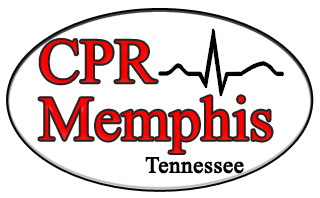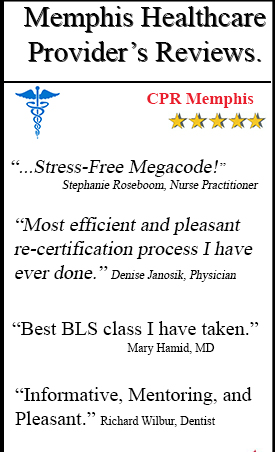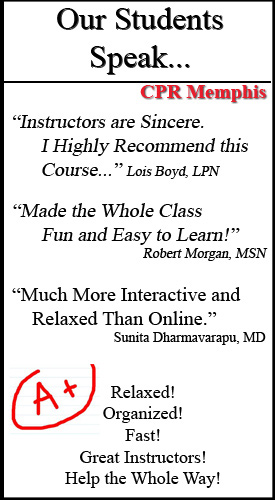Comparing Training Focus: BLS vs. ACLS
In the world of healthcare and emergency response, having the right certifications is not just a professional requirement—it’s a matter of life and death. Among the most critical certifications for those in the medical field are BLS (Basic Life Support) and ACLS (Advanced Cardiovascular Life Support). Both certifications equip healthcare professionals with essential skills, but they cater to different levels of expertise and scenarios. Understanding the key differences between BLS and ACLS is crucial for anyone looking to advance their emergency response capabilities, whether you’re a first responder or an experienced healthcare provider. If you’re in the Memphis area, CPR Memphis stands out as a top training site for both BLS and ACLS certifications, offering high-quality, hands-on training.
What is BLS?
BLS, or Basic Life Support, is a certification that focuses on providing fundamental life-saving techniques. The purpose of BLS is to equip individuals with the skills needed to support patients experiencing life-threatening emergencies until advanced medical care arrives. The audience for BLS is broad, including healthcare providers, first responders, and even laypersons who want to be prepared for emergencies. Key skills covered in a BLS course include performing high-quality chest compressions, using an Automated External Defibrillator (AED), and providing effective rescue breaths. The emphasis is on the immediate and initial response to cardiac arrest and other emergencies, where time is of the essence.
What is ACLS?
On the other hand, ACLS, or Advanced Cardiovascular Life Support, is designed for healthcare professionals who deal with more complex and critical medical situations. ACLS certification is tailored for advanced healthcare providers, such as emergency room staff, intensive care unit (ICU) nurses, and paramedics. The purpose of ACLS is to provide a comprehensive understanding of how to manage cardiac and respiratory emergencies using advanced techniques. Key skills covered in ACLS include advanced airway management, understanding pharmacology as it relates to emergency care, and mastering the advanced cardiac life support algorithms. ACLS certification enables healthcare providers to make quick, informed decisions in high-pressure situations, often involving teamwork and advanced medical interventions.
Key Differences Between BLS and ACLS
The primary difference between BLS and ACLS lies in the scope of training each certification offers.
Scope of Training
BLS is focused on basic techniques that can be performed by both healthcare providers and laypersons to manage emergencies until more advanced care arrives. This includes CPR, AED use, and maintaining an open airway.
ACLS, however, involves advanced techniques and comprehensive management of cardiac and respiratory emergencies. ACLS certification delves into complex medical scenarios that require a deep understanding of cardiac rhythms, drug administration, and coordinated team-based responses. In essence, BLS lays the foundation, while ACLS builds on that foundation with more specialized and advanced training.
Target Audience
The target audience for each certification also varies significantly. BLS is designed for a broad range of healthcare professionals, including nurses, medical assistants, and emergency medical technicians (EMTs), as well as non-medical individuals who want to be prepared to assist in an emergency. In contrast, ACLS is specifically for healthcare providers who manage more complex and critical situations, such as physicians, nurse practitioners, and experienced paramedics. The advanced nature of ACLS makes it essential for those who are directly involved in the management of severe cardiac events and other critical emergencies.
Certification Requirements
When it comes to certification requirements, BLS is generally less intensive than ACLS. BLS courses focus on foundational CPR skills and initial emergency care, making it more accessible to a wider audience. ACLS certification, however, requires a detailed understanding of cardiac rhythms, drug administration, and the decision-making processes involved in advanced life support. As a result, ACLS courses are more comprehensive and demanding, often requiring prior knowledge and experience in basic life support techniques.
Course Content
The content of the courses further highlights the differences between BLS and ACLS. BLS courses emphasize basic life support skills and scenarios, ensuring that participants can effectively respond to common emergencies like cardiac arrest. ACLS courses, on the other hand, cover advanced cardiovascular life support techniques, including the use of medications, advanced airway management, and complex scenarios that involve team dynamics and rapid decision-making. ACLS training prepares healthcare providers for the most critical moments when every second counts and the stakes are incredibly high.
Course Duration and Format
The duration and format of BLS and ACLS courses also differ. BLS courses are typically shorter, and often completed in a single day. They are designed to be accessible and provide immediate skills that can be applied in everyday emergencies. ACLS courses, however, are longer and require more extensive training and practice. The additional time is necessary to cover the complex material and ensure that participants are fully prepared to handle advanced medical emergencies.
Importance of Each Certification
Both BLS and ACLS certifications offer significant benefits, depending on your role and responsibilities in healthcare. BLS certification is crucial for those who need to provide an immediate response in emergencies, offering essential skills for the initial assessment and stabilization of patients. For those in more advanced roles, ACLS certification provides the comprehensive care needed in critical situations. It enhances the ability to work as part of a healthcare team during advanced life support scenarios, where quick thinking and precise execution can save lives.
Conclusion
In conclusion, BLS and ACLS certifications are both essential for healthcare professionals, but they serve different purposes. BLS certification provides the foundational knowledge and skills for basic life support, while ACLS certification focuses on the advanced cardiac life support techniques required for managing more complex medical emergencies.
If you’re a healthcare provider in the Memphis area, it’s important to ensure that you have both BLS and ACLS certifications to provide the best possible care to your patients. CPR Memphis, an American Heart Association training site, offers initial certifications and renewal in BLS for Healthcare Providers, ACLS, PALS, and CPR and First Aid courses. Their classes are stress-free and hands-on, ensuring that you can confidently apply your skills in real-world situations.
Don’t wait – enroll in BLS certification in Memphis and ACLS certification in Memphis today with CPR Memphis, the best CPR training provider in the area. Invest in your professional development and the safety of your patients by getting the essential certifications you need.





